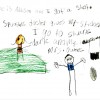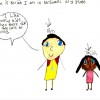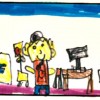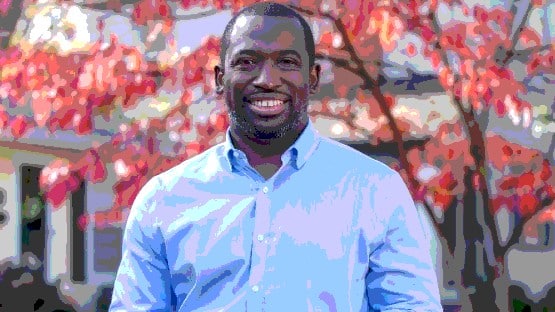National Doctors Day is March 30. If you look around Augusta Health today or anytime over the course of the next couple of weeks, you might notice a nice homage to our local doctors courtesy local third-graders.
Nearly 250 third-grade students from Wenonah Elementary in Waynesboro, A.R. Ware Elementary in Staunton, Stuarts Draft Elementary, and Stuart Hall Lower School in Verona drew pictures and wrote short stories about why their doctor is special to them.
The project was the brainchild of the Augusta Health Foundation. Tami Radecke, the vice president of fund development at the Foundation, said the idea to engage local students in National Doctors Day came from an internal discussion about how to get the local community as a whole involved in learning more about what the hospital does to enhance the quality of life for local residents.
“When we began to talk about Doctors Day, we began to talk about ways in which we might be able to do that, and how involving children might be a great way to engage local school districts in helping build that relationship,” Radecke said.
Margaret Wood, the annual giving officer at the Augusta Health Foundation, said the results of the project exceeded expectations.
“What impressed me so much was that the principals were so excited about this project, and that the children were as engaged as they were,” Wood said. “The children’s drawings just blew us away. Eight-year-olds in Staunton, Waynesboro and Augusta County really love their doctors. There’s absolutely no doubt about that. They said it in every single way they could.”
Rebecca Jarvis, the principal at Wenonah Elementary in Waynesboro, said her students “really got on board with the project and got into the spirit of what they were supposed to do.”
“We had students that wrote about dentists, we had students who wrote about our school nurse, we had students who wrote about their pediatricians and other doctors that they have connections with through their families. It was exciting to see them so excited about what doctors mean to them and the role they play in the community,” Jarvis said.
The schools saw another benefit from the project, according to Jarvis.
“Anytime we can connect something that is relevant to their personal experiences to things like writing or art, it just really helps to connect the academic part of their life at school to their outside life of being a member of the community. So when we can provide an opportunity for students to make relevant something that is real to them and something that is personal to them, and bring it into an academic setting, it helps us continue to extend the mission that we have in our schools,” Jarvis said.
– Story by Chris Graham













